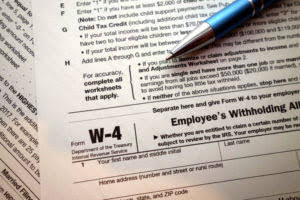
Both a bookkeeper and Legal E-Billing an accountant are essential for your nonprofit to manage its finances effectively. Engaging an independent certified public accountant (CPA) to conduct an external audit is crucial for nonprofits. External audits objectively evaluate financial statements, enhance credibility, and ensure compliance with accounting standards and regulatory requirements. Non profits should seek professional help for complex financial transactions, regulatory compliance, audit preparation, and as the organization grows and financial management becomes more complex. Professional bookkeepers and accountants provide expertise and ensure accuracy. Accurate bookkeeping is crucial for transparency, accountability, and regulatory compliance.
Types of Nonprofit Bookkeeping and Accounting Services

Bookkeepers serve as a financial liaison between an organization and external parties, including vendors and tax authorities. That’s why they must have the ability to communicate financial information clearly and effectively. Bookkeepers with this expertise normal balance help nonprofits reduce risks and maintain financial integrity. Bookkeepers handle many types of financial data that need absolute precision. Even minor errors in recording transactions can result in poor decision-making and potential legal issues. You must keep these funds separate from your personal account to remain transparent and provide required reports to your board and the IRS.
- We’ll also handle a variety of analysis and reporting tasks, such as reconciling accounts, compiling financial statements, and issuing 1099s.
- If the value of the donation is over $5,000, you should get the donation formally appraised by an expert.
- Give the Better Bookkeepers a call for assistance in every step of the QuickBooks process, from deployment to long-term support.
- This means you’ll always get continuous service, no matter how complex or minor your accounting needs are.
- Responsible for maintaining the fiscal records and accounts of the nonprofit organization.
Guide to Bookkeepers for Nonprofits: Everything You Need to Know
This position may also be responsible for maintaining detailed financial records, preparing budgets and tracking expenditures. Your nonprofit’s statement of financial position is another name for your balance sheet. Your statement of financial position provides a snapshot as to what your finances looked like during a certain period of time.
Zoho Books
These statements provide a snapshot of the organization’s financial health and performance. Bookkeeping for nonprofits refers to recording, organizing, and maintaining financial transactions and records for nonprofit organizations. Like any other organization, nonprofits need to accurately track their income, expenses, assets, and liabilities to ensure financial transparency, meet legal requirements, and make informed decisions. Typically, a bookkeeper for a nonprofit organization works in coordination with a managing or executive director. They are responsible for performing a variety of nonprofit bookkeeping duties, including financial record keeping and transactions, such as accounts payable, accounts receivable, and general ledger.
Share nonprofit financials when you need to
Nonprofits should have a clear method to allocate costs according to their programs, administrative expenses, and fundraising events, primarily to accurately report on an organization’s spending patterns. While these aspects are key, they revolve around the central theme, that is, the effective management of the organization’s finances. The fund balance refers to the net worth of a nonprofit organization, resulting from the accumulated surplus or deficit of revenues over expenses. Maintaining a healthy fund balance is vital for continuity and sustainability. Tracking these stocks can be complex, as they often come with conditions about how they must be used. Detailed records must be kept to identify the source, amount, and restrictions of each revenue stream to help ensure the funds are utilized appropriately.

What is not for profit bookkeeping?
The communities of the Bay Area recognize the effort we put in for them, and it shows. If you look at what businesses who’ve tried our bookkeeping nearby are saying, you’ll see one five-star testimonial after another. The best indication of the quality of our services is that our past customers are united in their praise for Better Bookkeepers.

Their services encompass several key financial tasks, including bank statement reconciliation, cash flow management, and budgeting and forecasting. Devoted Bookkeeping employs a comprehensive approach to address various accounting services for nonprofit organizations aspects of an organization’s financial operations. We’ll partner with you to automate key accounting processes and create forward-looking plans that make your future feel less uncertain.
- By implementing these best practices and embracing internal and external audits, non-profit organizations can strengthen their financial management, enhance transparency, and build trust with stakeholders.
- Nonprofit accounting may seem complex, but with a solid understanding of the fundamentals and strategic use of technology, it becomes easier to manage.
- Our team of experienced nonprofit accountants and bookkeepers will provide visibility on your fund balances and monthly updates on your balance sheet, income statement and cash flow statement.
- Determine if you are likely to be able to afford them and if they include the necessary features your nonprofit needs as it grows.
- While the basic bookkeeping principles may apply in both cases, certain seemingly small details make significant differences in how a nonprofit’s finances are done.
By tracking categories, you know if funds are being allocated to the right projects based on donor intent. Non-profits must carefully manage their resources to ensure they can continue to serve their community effectively. A bookkeeper plays a crucial role in budgeting and financial planning, helping the organization set realistic financial goals, allocate resources efficiently, and plan for future projects and expansions. They provide the data and analysis needed to make informed decisions, ensuring that the non-profit can maximize its impact. The duty is responsible for maintaining books and records of organization’s finances. This includes preparing financial statements, preparing grant proposals, and other administrative duties.

QuickBooks is the most well-known accounting software for nonprofits and for-profit organizations. It has a nonprofit software that allows organizations to invoice, track donations, develop reports, and more. While an accountant will interpret financial reports and make informed suggestions for the board, a bookkeeper is responsible for organizing the nonprofit’s data to create these reports. Since nonprofit organizations don’t center on profit but on a nonprofit mission, they have different bookkeeping practices. While the basic bookkeeping principles may apply in both cases, certain seemingly small details make significant differences in how a nonprofit’s finances are done. Nonprofit accounting and bookkeeping revolve around representing an organization’s financial records in compliance with generally accepted accounting principles (GAAP).